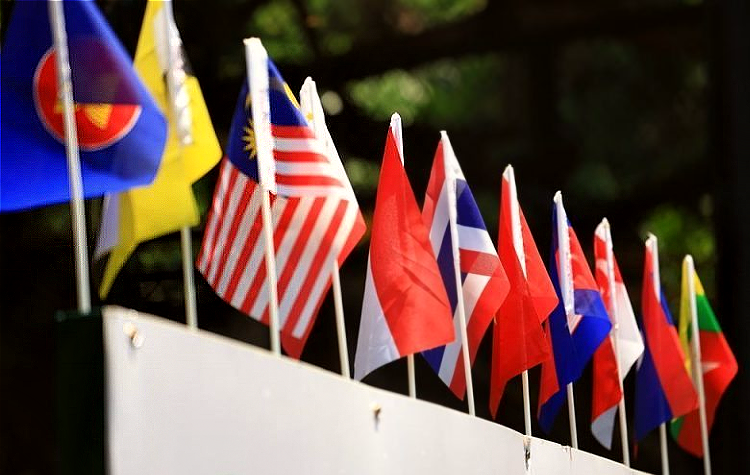(Bangkok/Jakarta, 21 April 2020) — ASEAN Member States banding together to combat misinformation and fake news during the COVID-19 pandemic spells grave concern, given the atrocious track record of the freedom of expression by its Governments.
‘Since the pandemic began, we have seen laws tighten to stifle free expression and dozens arrested, charged or brought to court for criticising the government handling of the pandemic, including at least 300 people in Vietnam being fined for posting Facebook comments on COVID-19. The absence of a firm commitment from ASEAN to uphold human rights in this declaration at this critical time is disappointing,’ Executive Director of the Asian Forum for Human Rights and Development (FORUM-ASIA) Shamini Darshni Kaliemuthu said in a statement.
She was referring to the declaration[1] made following the Special ASEAN Summit on Coronavirus Disease 2019 on 14 April 2020 which saw ASEAN heads of States and Governments convene virtually to discuss a coordinated approach to combat COVID-19.
Point (iii) of the declaration reads:
Enhance effective and transparent public communication involving multiple forms of media including timely updates of relevant government policies, public health and safety information, clarifications on misinformation, and efforts to reduce stigmatization and discrimination. Encourage the ASEAN information sector to strengthen cooperation in countering misinformation and fake news, as well as to develop a set of guidelines and a possible common platform to facilitate timely sharing of information in ASEAN.
‘ASEAN’s blanket approach toward countering misinformation and fake news through criminalisation is a sure sign that the freedom of expression will deteriorate further in the region,’ Shamini emphasised.
Civil society organisations in ASEAN countries have already recorded how Member States are becoming more authoritative and repressive in response to COVID-19, among others by imposing the implementation of repressive laws and policy to curb online freedom of expression and opinion under the pretext of safeguarding national security and avoiding social unrest.[2] The finding is supported by the increasing number of arrests of those who allegedly conveyed false information and dissenting voices against the Governments of ASEAN related to COVID-19.
‘Using individual Member States’ existing oppressive approaches as a foundation for an ASEAN community response to COVID-19 would only aggravate the violation of human rights and fundamental freedoms in ASEAN countries, particularly those under authoritarian regimes. It will hinder ASEAN’s effort to battle the pandemic effectively, by creating resistance and distrust towards government institutions,’ Shamini said.
Further to the arrest of the some 300 in Vietnam, the Government also recently passed a decree to fine those who allegedly share false, untruthful, distorted, or slanderous information that goes beyond the scope of COVID-19, cracking down on an already restrictive civic space that oppresses its people.[3]
In Cambodia, at least 22 people have been arrested for spreading allegedly false information related to COVID-19.[4] In Indonesia, following the arrest of at least 80 people under the information and electronic transaction law in the past two months, the police issued an order to criminalise defamation against the President and other government officials during the pandemic.
The emergency legislation in the Philippines – besides granting special powers to the President – includes a provision to punish groups or individuals for spreading ‘false information’ regarding the COVID-19 crisis on social media and other platforms. Since then, the country’s National Bureau of Investigation has summoned ordinary citizens for criticising the Government’s response to COVID-19.
Strict measures against the spread of misinformation have also been adopted in Malaysia, Myanmar, Singapore and Thailand.
‘Measures taken by individual ASEAN Member States should not be accepted as best practices in ensuring the transparent exchange of information during a pandemic, considering the adverse impact such measures have had on the freedom of expression, particularly for vulnerable groups in the region. FORUM-ASIA strongly urges ASEAN to desist from adopting any measure that violates human rights and fundamental freedoms,’ Shamini said.
‘ASEAN needs to redirect its efforts to regain public trust by holding its Member States accountable to international human rights standards and principles, and to enable civic participation in pandemic responses to ensure the transparent, accurate and reliable exchange of information that is vital to combat the crisis,’ she added.
**
For a PDF version of this statement, please click here.
For further information, please contact:
East Asia and ASEAN Programme, FORUM-ASIA, [email protected]
[1] https://asean.org/storage/2020/04/FINAL-Declaration-of-the-Special-ASEAN-Summit-on-COVID-19.pdf
[2] https://forum-asia.org/?p=31333
[3] https://www.thejakartapost.com/seasia/2020/04/15/vietnam-introduces-fake-news-fines-for-coronavirus-misinformation.html
[4] https://forum-asia.org/?p=31475




